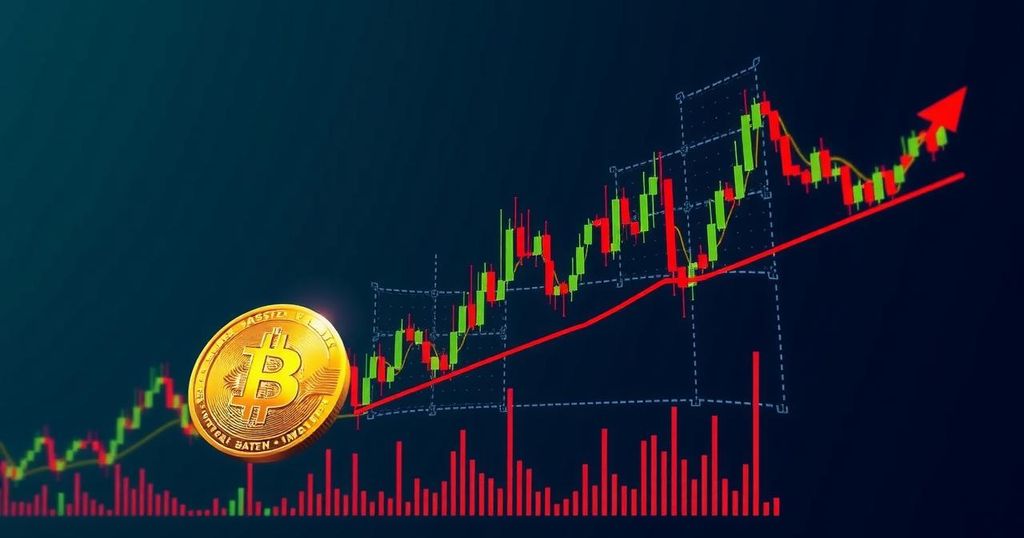The Effects of U.S. Presidential Elections on Bitcoin’s Price Trends
The analysis explores the correlation between U.S. presidential elections and Bitcoin’s price, revealing historical trends of significant price surges post-election. Bitcoin’s historical performance following the elections of 2016, 2020, and 2024 illustrates its appeal as a protective asset amidst economic uncertainty, suggesting a potential pattern for future elections.
The influence of U.S. presidential elections on Bitcoin’s price has been a subject of extensive analysis among financial experts and cryptocurrency advocates. Historical trends indicate that Bitcoin tends to appreciate significantly following each election cycle, regardless of the political victor. Notably, in 2016, Bitcoin’s price soared from approximately $715 during the election period to over $18,000 by December 2017, reflecting a growth of more than 3,000%. Analysts attribute this surge to increasing investor confidence in Bitcoin as a refuge amidst global economic uncertainties. In the context of the 2020 election, Bitcoin exhibited a remarkable recovery, registering more than a 450% increase within the ensuing year. This growth occurred amid the COVID-19 pandemic, which had initiated an economic crisis; however, many investors flocked to cryptocurrencies as protective assets. By the end of 2021, Bitcoin reached an impressive peak of nearly $69,000, reinforcing its appeal as a premier investment option during turbulent economic times. Further affirming this trend, Bitcoin reached a record high exceeding $73,000 in March 2024, demonstrating the historical tendency for post-election surges in its price. Although fluctuations surrounding elections remain pronounced, the evidence suggests that there exists a consistent growth pattern following these political events. This raises questions about the direct correlation between U.S. elections and Bitcoin pricing versus the influence of broader macroeconomic conditions.
The topic of the relationship between U.S. presidential elections and Bitcoin’s price encompasses both economic and political dimensions, highlighting how external factors such as global crises and government policies impact investor behavior. Over the last decade, Bitcoin has gained traction as a credible asset, particularly during economic downturns, leading to distinct price movements in alignment with major political events. Understanding this dynamic is crucial for stakeholders in the cryptocurrency market, as it often dictates investment strategies and market sentiment.
In summary, U.S. presidential elections appear to correlate with significant appreciation in Bitcoin’s price, evidenced by remarkable growth following the elections of 2016, 2020, and 2024. While underlying volatility persists, the historical post-election trends indicate a robust interest in Bitcoin as a viable asset in uncertain economic climates. As cryptocurrency adoption continues to rise, these patterns are likely to endure, although investors must remain vigilant regarding the uncertainties inherent in the market.
Original Source: londonlovesbusiness.com




Post Comment